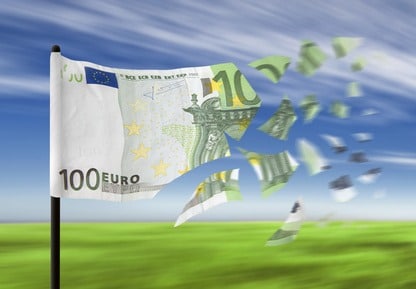The past week ended with great optimism: the talks between the EU/ECB/IMF troika and Greece ended “positively” with a new bailout program coming soon. The Euro jumped and had a fantastic close to the week? Is it really that good? Not exactly. There is high uncertainty regarding Greece and around two other countries. Let’s see:
1) Greece – Nothing is certain
Details please? The feeling of optimism that came from Greece gave a feeling that the deal is done. But that wasn’t announced. There is uncertainty about the size of the new bailout package and what measures would need to be taken, including austerity measures and privatization. There isn’t too much time left: The EU summit is due on June 23-24, and the next tranche of aid is planned for June 29th, Greece will run out of money during July.
Private sector involvement? Germany want burden-sharing from the private sector, according to reports over the weekend. The talks are for a 30 billion euros in debt that will be rolled over in a creative way that would not trigger a credit event. Great. But will the ECB agree to such participation of the private sector? That is some form of restructuring, and the central bank opposes any such form.
Political Hurdles: The current Greek government has a majority of 156 seats out of 300 in the parliament. The opposition already announced that it opposes the new austerity measures. And so did 16 members of the ruling party. Without them, the government doesn’t have a majority to pass the measures. Also in Germany, Finland and the Netherlands, there is growing opposition to another bailout. This will be tough.
Greece getting ready for default: The central bank in the debt stuck country plans to ask banks to strengthen their core capital, as a preparation for a haircut. Even the Greek central bank, a member of the European Central Bank, is getting ready…
2) Spain – Hidden debt begins to Surface
The country that is “too big to bail” is beginning to reveal the hidden debt. At first, when the weekend began, the new governor of Castilla La-Mancha region revealed that the local government has money only for one more month of salaries and that it owes 2 billion euros of unpaid bills. This may sound like a small sum, but the region is small as well. They are quite broke.
This was followed by another small region of the Balearic islands. They also cannot pay salaries, and are at the brink of bankruptcy. Spain has 17 regions, out of whom 13 went to elections two weeks ago.
These finding come from politicians in the country’s opposition party, the PP, which won these regions. The ruling Socialists say that the regions already controlled by the PP are the biggest spenders. It doesn’t look good.
3) Portugal – Elections Loom
The third country to get a bailout from the troika received it by a caretaker government. The elections, held on Sunday, are expected to swing power from the ruling Socialist party to the Social Democrats – the main opposition party. Both parties have vowed to get the country out of the mess and to honor the bailout terms.
Will the current opposition party get a majority in parliament? Probably not. They will be likely to form a coalition with their traditional partner – the right wing PP-CDS party. According to recent polls, both parties might be able to form a government without any other partners.
But this isn’t certain. The outgoing government was a minority one in Portugal, and it held onto power only for two years. Without a stable government, Portugal will return to the headlines sooner than later…
In addition, the ECB will make its monthly rate decision on Thursday, and key figures will be released from Germany this week. For more on upcoming events, and a technical analysis for EUR/USD, see the euro to dollar forecast.

